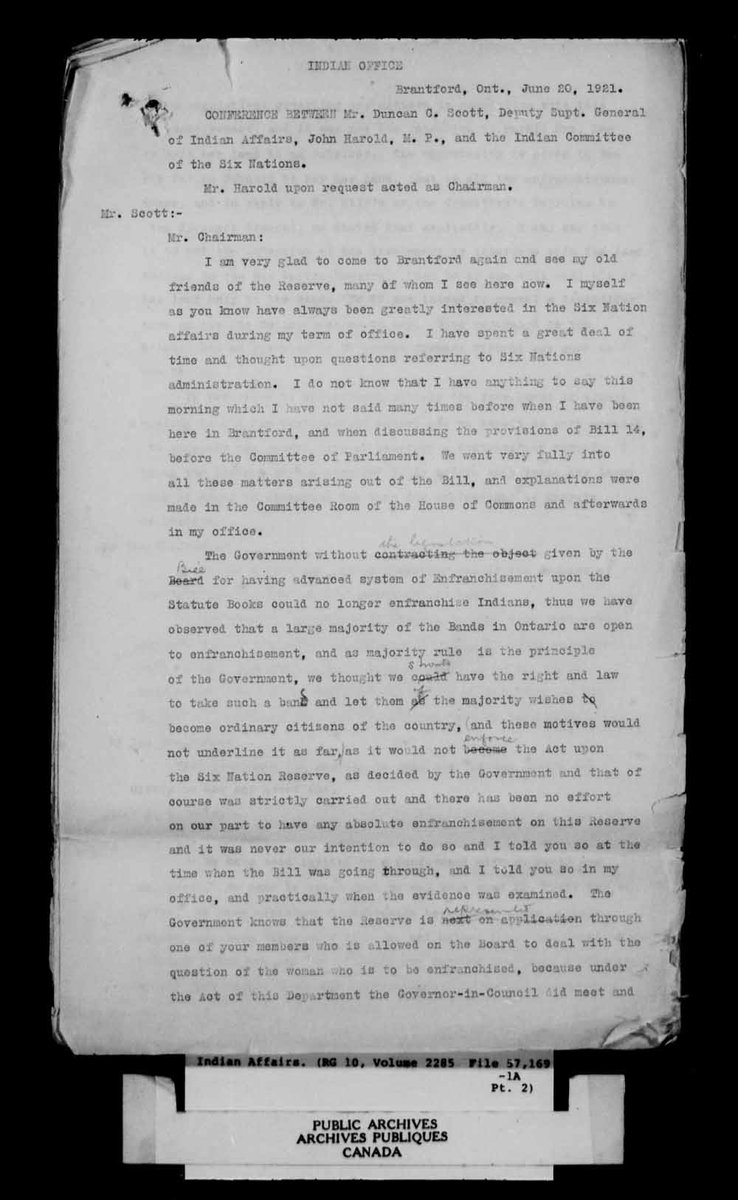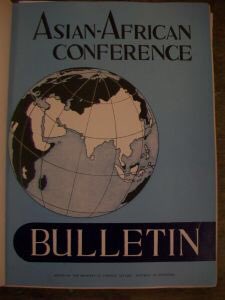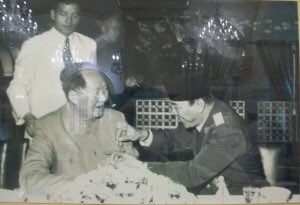
Current #WestPapua protests are fueled by Indonesian racism against Papuans. asiatimes.com/2019/08/opinio… That #racism has a history, and it's one reason world powers agreed to hand West Papua to Indonesia in the first place back in the 1960s. Thread.
1960s: one Indonesian writer wanted to “free” Papuans from “stone age civilization” but noted their skills in music & sports; foreign minister wanted Papuans “down out of the trees even if we have to pull them down”; Indonesian president's audience wore blackface at a rally.
A briefing from US president John F Kennedy's national security staff dismissed Papuans as a "stone age" people 

Another JFK admin document from a Dutch writer says it is not worth arguing over "who will train the Papuans to eat with knife and fork." 

President Kennedy himself told a Dutch ambassador that the people of West Berlin deserved self determination because "they were highly civilized and cultured" but the people of West Papua did not because they were "living, as it were, in the Stone Age." 
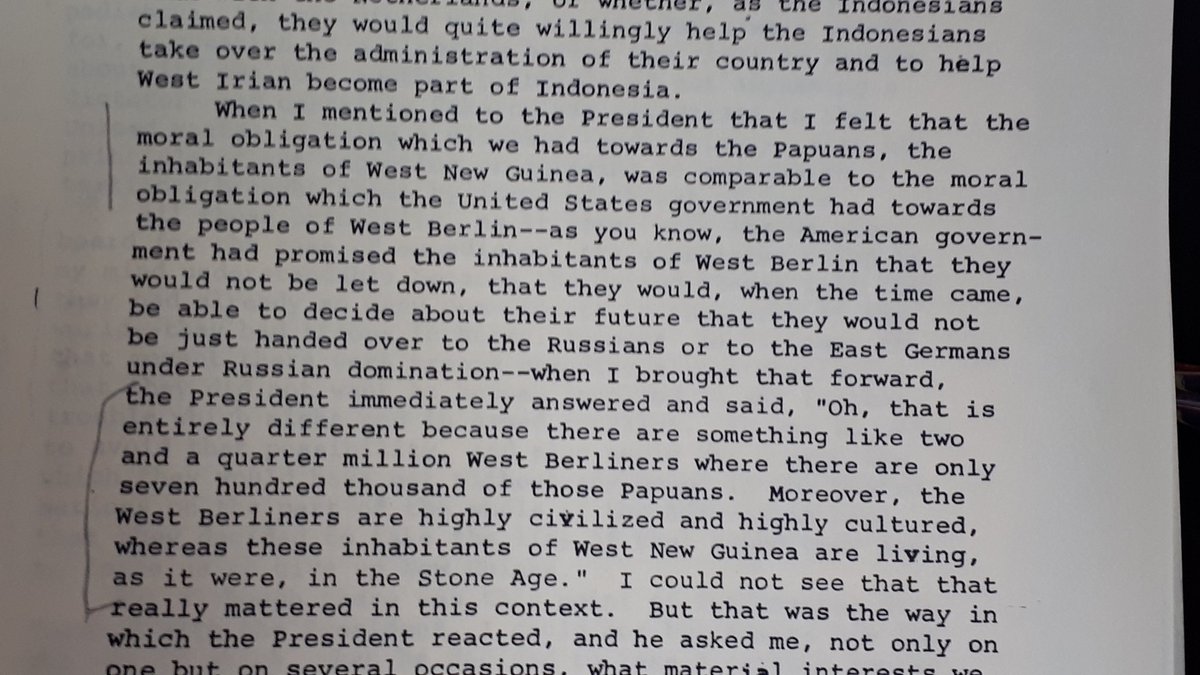
Indigenous Papuans were undeserving and incapable of self determination, says this Kennedy State Department briefing paper. 
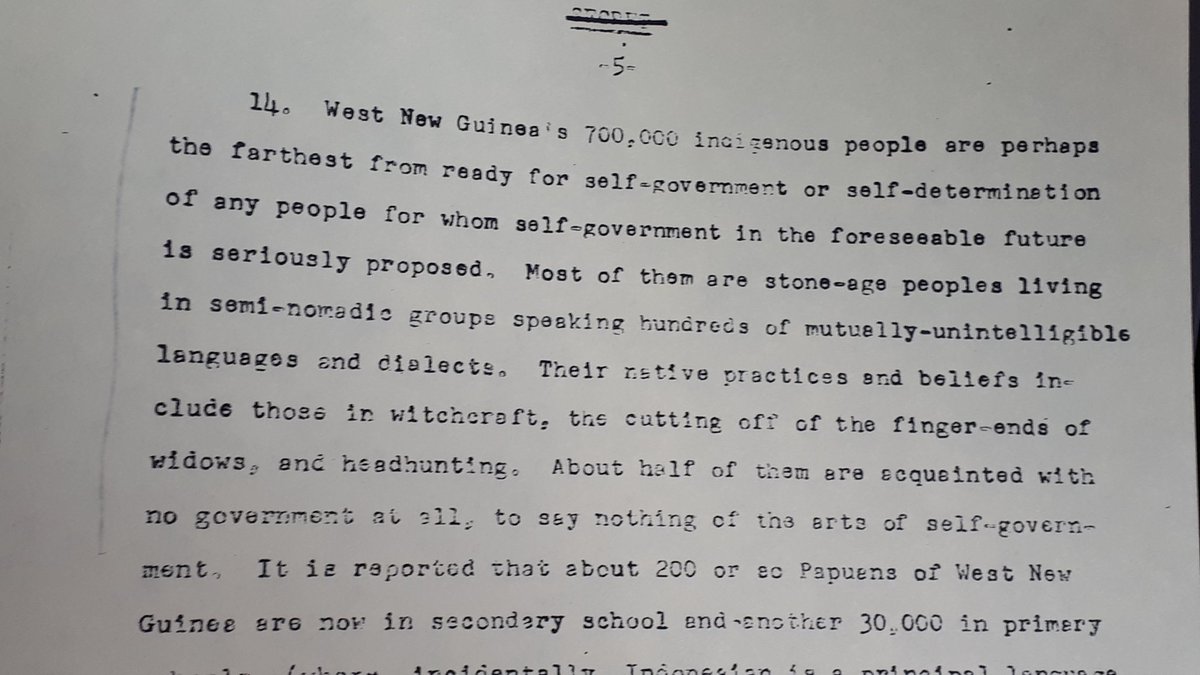
Grand cold war strategy mattered, says this Kennedy National Security staffer. A "few thousand square miles of cannibal land" did not. 

As Indonesia took possession of this "cannibal land" - blocking a Papuan independence process - the British ambassador thought Indonesia would succeed in its plan to "introduce civilization." 

The Canadian ambassador meanwhile thought it did not matter who tried to "tempt the Papuans down from the tree-tops." The cold was important, but defence of Papuan rights was "dubious" 

Western images of Papuans were mediated through images of the Dani and other highland peoples peddled in US comic books and anthropological expedition reports. 

A photo book that President Kennedy's staff gave to him showed Papuans literally "dressed in feathers," evoking images of the American frontier advancing, sweeping "dying races" of Indigenous people from their lands. Self determination for these people? US officials scoffed. 

Papuan leaders tried yo spread different images. In this one, a Papuan student and teacher are observed by ambassador Frederic Guirma of Upper Volta, which had just won its own independence. But these images did not dent Western perceptions of "primitive" Papuans. 

@threadreaderapp unroll
• • •
Missing some Tweet in this thread? You can try to
force a refresh



